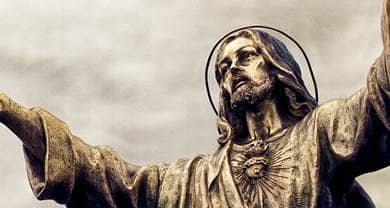- Trending:
- Pope Leo Xiv
- |
- Israel
- |
- Trump
- |
- Social Justice
- |
- Peace
- |
- Love

RELIGION LIBRARY
Lutheran
Sacred Narratives
Lutheranism shares the classic grand sacred narrative with other branches of Christianity: God created the world, good, out of nothing, and populated it with plants, animals, and humans who enjoyed the earthly paradise, enjoyed direct contact with God, and were originally immortal. But the humans, out of pride, rebelled against God, and this sinful act separated them from God, corrupted human nature, subjected them to death, and marred the perfect creation.
Because the offence against God was infinite, but humans finite, there was nothing they could do to overcome the situation in which they had put themselves. Out of love, God became incarnate (was born as a human) in Jesus. This divine-human Jesus allowed himself to be put to death as a sacrifice that, because made by a being both human and divine (infinite), pays the price for human sin. Those who hear and believe in this act of love know that their sins are forgiven, and they enter again into a closer relationship with God, including direct contact and immortality, not in this world but in the next. This forgiveness is gracious, because it is freely (or gratuitously) given.
Within this grand narrative (there are others in the Christian tradition, but this has been the dominant one), Protestantism has several distinctive plot twists, and within Protestantism Lutheranism has further distinctive traits. At the core of Luther's movement was his reaction against the medieval Roman Catholic tradition (articulated most fully by Thomas Aquinas, ca. 1225-1274) that humans had to merit salvation. Luther's key insight came in his realization that Paul may have taught something different. The second half of verse 1:17 of Paul's Letter to the Romans can be translated either "The one who is righteous will live by faith" (this is how Catholics have read this verse), or "The one who is righteous through faith will live." Righteousness means to be in a right relationship with God, to be in God's favor. The first reading implies that one needs to work for righteousness, and the reward will be faith. The second reading implies that faith is a gift, and brings righteousness with it.
Luther had struggled in his monastery to work toward righteousness, and felt that, despite his best efforts, he had failed. The message, then, that it was not up to him to earn righteousness, but that it came as a free gift from God, was a tremendous relief for him. This is the central Lutheran doctrine of justification by faith alone, and it lies at the heart of everything Luther said, wrote, and did. Faith for Luther was the confidence that God had graciously forgiven his sins. It had several important consequences that determined the Lutheran sacred narrative of salvation.
First, according to Luther, humans after the fall are simply not smart enough or good enough to do anything pleasing to God. Luther emphasized again and again that works could not save a person. He did, however, expect that those who experienced salvation would be eager to glorify God by serving their neighbors. He expected a good tree to bear good fruit, but people could never hope to make their tree good by focusing on their fruit. God does not need works. Before God, you can do nothing to earn salvation. Your neighbor does need your works. Luther expected a great deal of effort for your neighbor.
In a sense, from a human perspective, God chooses the least sensible means of salvation, precisely to drive home the point that we cannot control it, it is not our work but God's. Luther called this his "theology of the cross," in contrast to the "theology of glory." You would expect the savior to appear as a powerful king, not a poor baby. You would expect him to vanquish his enemies, not be killed by them as a criminal. You would expect good works to be rewarded and the just to prosper. You would expect the head of the church to live as a king, not as a poor itinerant. These expectations for Luther were temptations to trust human understanding and human capabilities. The first move toward salvation, according to Luther, is for God to break down these expectations (he calls them "law") so that we trust God, not ourselves. This is the promise of the gospel (literally, "good news").
According to Luther, Christians cannot expect to be righteous or sanctified. They remain, like everyone else, sinners. A popular bumper sticker sums up this aspect of Luther's theology perfectly: "Christians: not perfect, just forgiven." Luther's technical phrase is "simultaneously a sinner and justified." This is in sharp contrast, for example, to Catholic teaching, and the teaching of John Wesley. One consequence of Luther's emphasis on God's complete power and humans' lack of power is that it drove him to the doctrine of predestination: if your salvation is not in your hands but God's, and God is the unchanging creator of all, then your fate was decided by God at creation. This doctrine will be worked out more fully by John Calvin, the great second-generation Protestant theologian.










